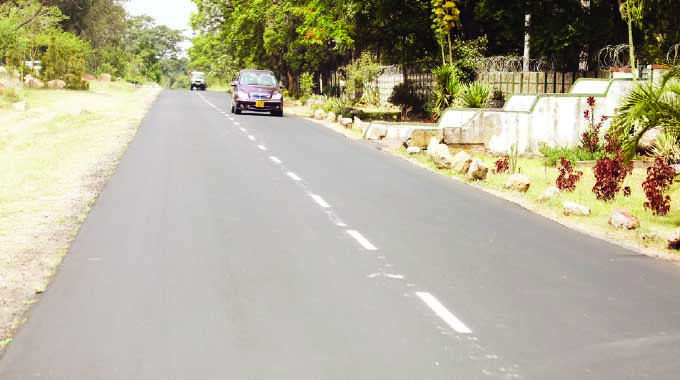Vic Falls to turn into Zim’s first ‘green city’

Leonard Ncube
Victoria Falls Reporter
Victoria Falls could soon be the first “green city” in the country with more bicycles than cars in the city centre.
Pedestrians and electric cars will also be part of the new normal in the envisaged zero-emission zone.
The ambitious plan is not the first of its kind in the world; it follows Sweden’s port city of Gothenburg which has set sights on becoming the world’s first climate-neutral city by 2030.
Victoria Falls — the country’s youngest city — has put climate-neutral transportation at the top of its five-year strategic plan that council is still working on and will be aligned to the National Development Strategy (NDS1).
Ensuring sustainable environmental protection and resilience is one of the seven objectives of NDS1.
The plan to create a zero-emission zone in Victoria Falls has been put on the table following a recent workshop that was facilitated by the Public Service Commission to train council workers, councillors and key stakeholders on basic tenets of a functional city.
The tourism city’s vision is to become Africa’s leading green destination and has since main-streamed global warming and climate change issues in its master plan.
Victoria Falls’ economy is largely anchored on tourism, hence the need to conserve the environment.
Council first crafted the five-year strategic plan in 2018 and the top target was to attain city status by 2022 but achieved it in 2020.
Focus has now shifted to providing clean water and attaining green city status.
The green city concept is a more recent response to the challenge of creating denser, greener and more liveable cities.
Victoria Falls targets to minimise cutting down of trees through awareness campaigns and penalising wood poachers, promote use of recyclable materials and procurement from green suppliers, maintain buffer zones, promote use of solar energy and develop walkways to reduce carbon emissions by encouraging people to walk or cycle around instead of driving.
In an interview, the city’s Housing and Community Services director Mr Brian Nyamande said maintaining the environment in its pristine state will bring wildlife closer to tourists and generate more revenue for the destination.
“We are encouraging people to avoid unnecessary cutting down of trees, especially in development zones. So, we are training workers who are in departments that are directly related to the environment so that we don’t damage flora and fauna. In our planning we are saying buffer zones should be maintained as animal corridors so that we become a clean or green city,” said Mr Nyamande.
He said the council is considering imposing heavy fines, especially against wood poachers and if one has to cut a tree, he or she must approach relevant offices for clearance.
“We want to promote use of pathways for pedestrians and cyclists to encourage people to walk than to drive so as to minimise carbon emissions. We are also promoting tree planting and we are working with various stakeholders including residents and environmentalists to upgrade a dump site to a landfill that will be fenced using an electric fence.
“We are promoting use of solar energy and also as a city we want to buy from those shops that are minimising use of plastic for environment conservation promotion because this is important in maintaining a green environment,” said Mr Nyamande.
Council also plans to establish community structures that will help promote community policing.
Matabeleland North Minister of State for Provincial Affairs and Devolution Richard Moyo said Victoria Falls is the tourism gateway into Zimbabwe and keeping the city in its pristine state will help attract tourists and promote the destination.
The initiative by Victoria Falls is in line with Government’s plans for Zimbabwe to reduce carbon emissions by 40 percent by 2030.
During his address during the United Nations Climate Change Conference, also known as COP26, which was held in Glasgow, Scotland, in November last year, President Mnangagwa said major emitters should scale up mitigation action and show greater interest in adaptation.
The President also said it is imperative that the set emission reduction targets are anchored on supporting, financing and equipping countries to gradually and sustainably migrate from fossil fuels to renewable energy.








Comments